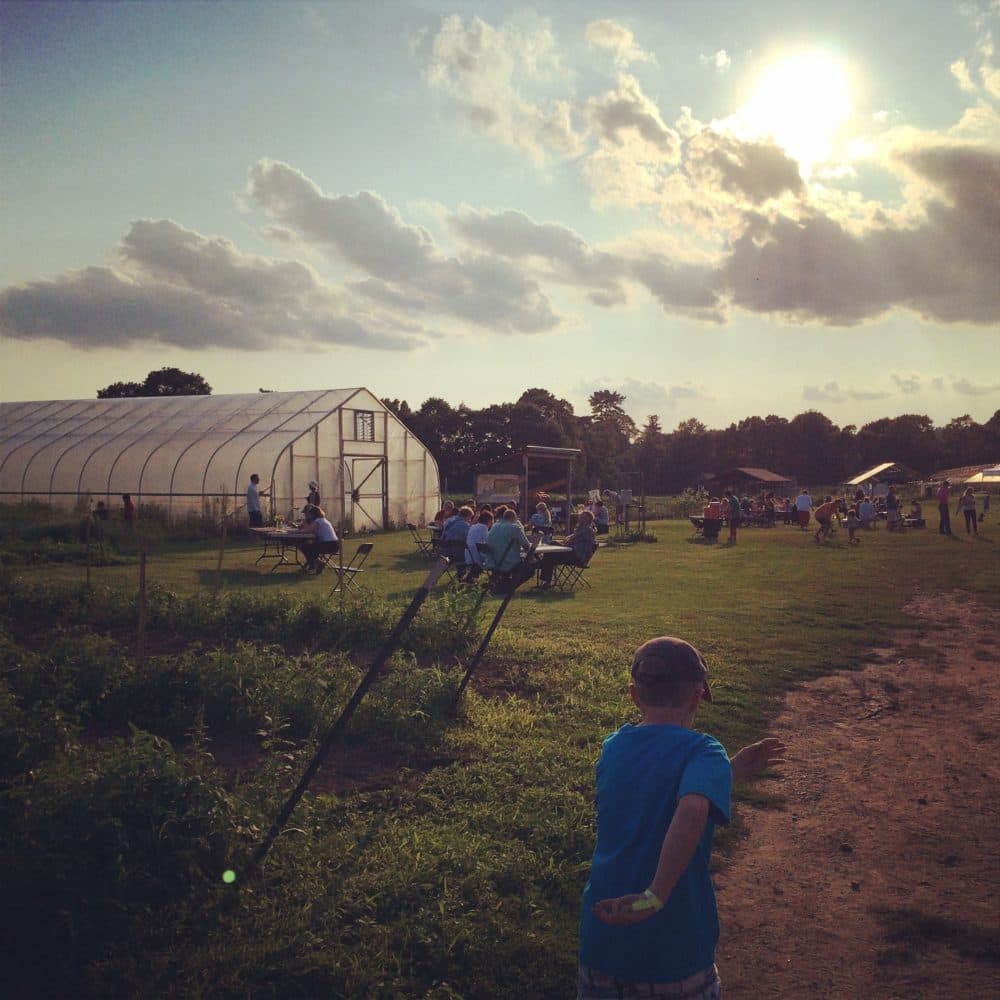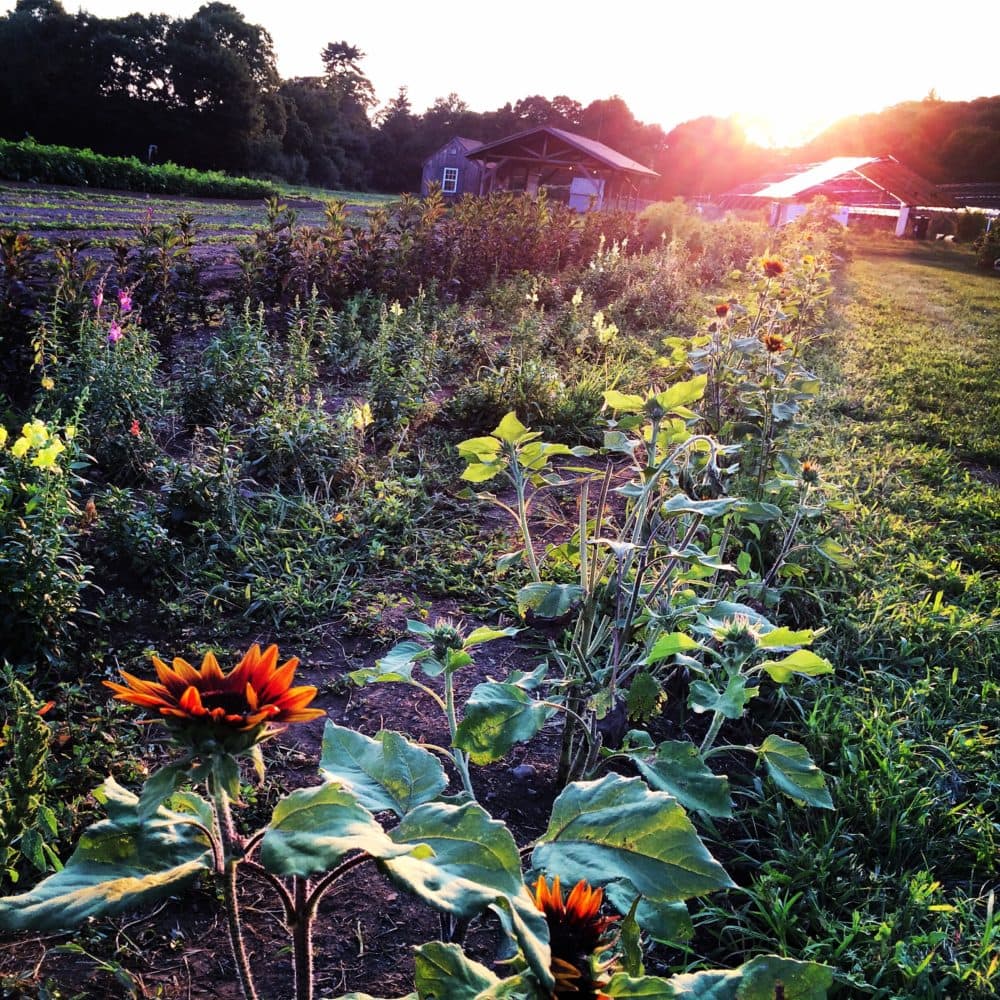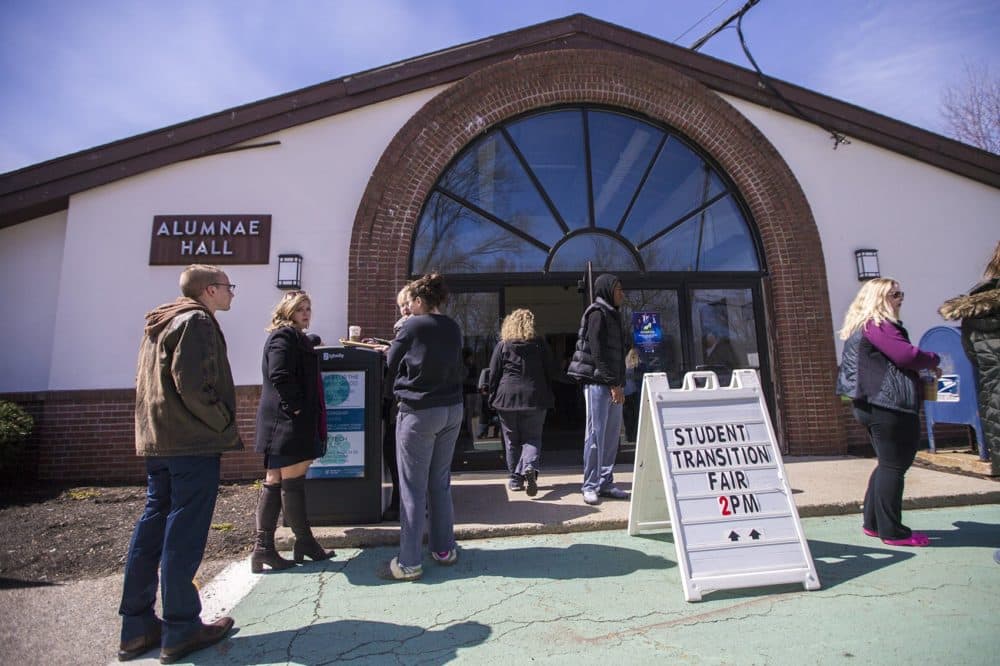Advertisement
Commentary
The Fate Of Waltham's Last Farm

Each fall, thousands of people gather for the Waltham Fields Community Farm’s farm day to celebrate the land that is our community’s last connection to an agricultural way of life.
The farm’s brick station house is home to a dozen land use and preservation groups and a host of academic researchers. Talk to anyone in Massachusetts who works on a farm and they’ve probably spent some time learning their trade at Waltham Fields. The same goes for anyone who works in food security, land preservation or community gardens.
The one organization that doesn’t seem to share a reverence for the farm is its landlord, the University of Massachusetts Amherst. (The site is also known as the UMass Waltham Center.) Instead, it seems increasingly clear that UMass views the farm as a potential revenue source, perhaps as a vehicle to dampen criticism of its decision, earlier this year, to acquire Mount Ida College in Newton.

According to current tenants at Waltham Fields, UMass has signaled that their days are numbered, because the university is considering closing the site. Dee Kricker of the Waltham Land Trust told me that UMass made tenants a simple offer: By the end of 2019, they can either move to Mount Ida, or find another office.
A reminder of what happened with Mount Ida might be helpful. In April, Mount Ida shut down after an attempted merger with Lasell College collapsed. UMass Amherst surprised many by stepping in and purchasing the campus for $75 million along with $11.5 million in debt. The school said they needed an outpost close to Boston. (UMass Boston’s officials saw it differently, pointing out that UMass already has a campus that meets that need: It’s called UMass Boston.) At the same time, Mount Ida’s handling of the closure came under scrutiny, sparking state Senate hearings and accusations of financial mismanagement, all of which tarnished perceptions of the purchase.
Though UMass Amherst hasn’t said this directly, offering Waltham Fields tenants space at Mount Ida seems like one way to justify the university’s decision to have bought the school in the first place.
The reasons are simple. The land is good land for farming and easy land for building. In fact, it’s the best land. Flat and open, it has been actively farmed since the 17th century. In the 1800s, it was owned by Cornelia Warren, one of the region’s first preservationists, who devised a deed to protect it in perpetuity.
Warren’s estate gifted the land to UMass in 1922. Over the last three decades, community members transformed it into a quasi-academic community field station that intertwines academic research about food and sustainability with the public-focused groups that are tenants there.

In 2014, UMass and Gov. Deval Patrick announced a $20 million plan to transform the existing research at the site into what the university called a “center focused on the development and growth of food and green industries in Massachusetts.” Their plan included a new field station alongside the farmland, intended to house classrooms, demonstration areas and offices for the tenants.
But Gov. Charlie Baker gutted that plan. Instead, in 2019, UMass will get a paltry $250,000 for a new boiler at the site.
Now that UMass Amherst owns more land in Greater Boston, it no longer needs its location in Waltham, particularly because it can make millions of dollars by selling that land. If the city of Waltham has allowed key provisions of Cornelia Warren’s deed to lapse, as it appears, it will be permissible for the land to be developed.
At this point, it seems likely that another local university will try to buy it. The unchecked expansion of universities has become a hallmark of the Boston building boom, from Harvard’s Allston campus to Brandeis University’s destruction of its historic castle structure for dorms. As educational institutions, universities are shielded from a number of zoning laws that hinder private developers.
The road that leads to the farm is a good example. Over the last 20 years, Bentley University has bought every piece of farmland between its main campus in Waltham and the farm, replacing once-open spaces with dorms, tennis courts and a hockey arena.
This land — a longtime source of learning and responsible stewardship — could become nothing more than cash-value on a balance sheet. It seems predatory. And it’s hard not to see the writing on the wall.
There are few good options. The farm is certainly deserving of National Register Historic Landscape status, which might offer some protections. But perhaps the best remaining outcome is that the city of Waltham buys the land, restores the deed and enshrines protections to keep the site exactly as it is. Of course, that proposition reveals the greatest insult of all, which is that the public already paid for this land: UMass is a public institution and our money pays for its operations.
I’d prefer that we didn’t pay for it again.
To save the farm, there will need to be sustained citizen support for the organizations that call it home. If there is any hope of preventing the farm from becoming another gleaming tower or tennis court, advocates need to ensure that negotiations are dragged into public view, where they can make demands, loudly — and with sustained pressure.
